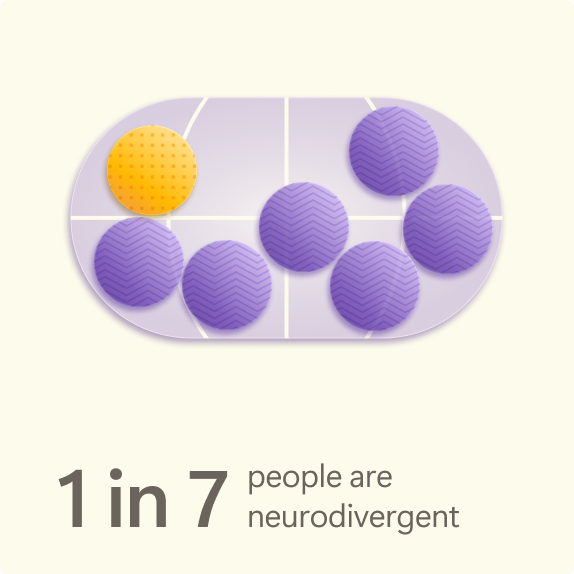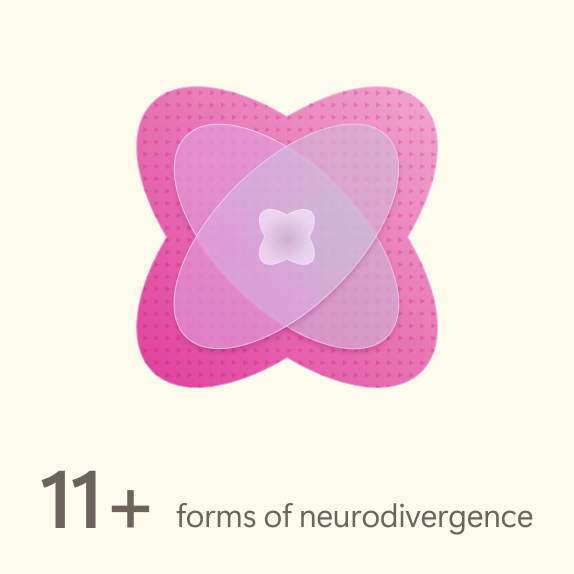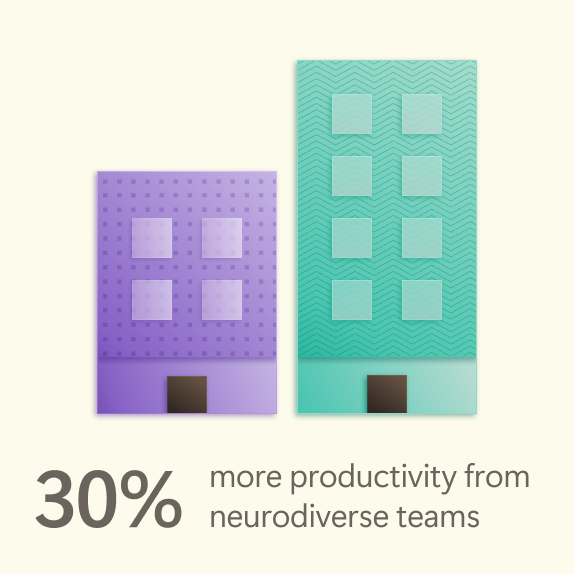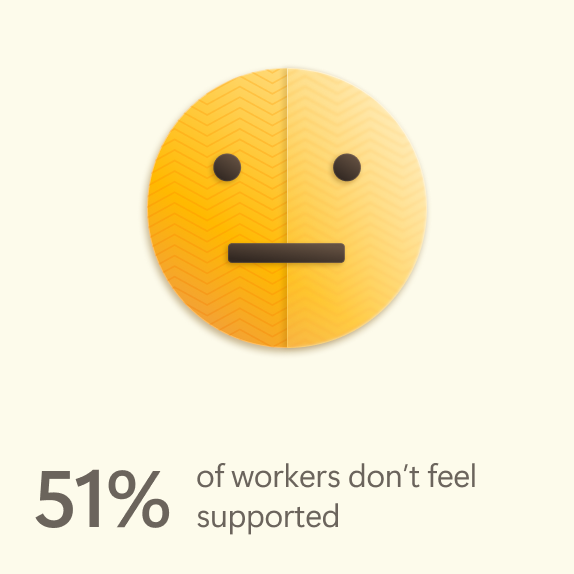Are there any workplace accommodations that will help you succeed in this role?
This question, which may seem like one of many that a job seeker would come across, had a significant impact on neurodivergent individual David Thomason. David was participating in the onboarding process for Mentra, a hiring platform that uses AI to match neurodivergent job candidates with fulfilling careers, and the question made him feel seen and heard as he looked for his next role. He used Mentra to get matched with a great opportunity—which happened to be a position at Mentra as a software engineer. Now David brings his authentic self to work every day, helping other neurodivergent job candidates find their next great roles.
I’ve always wanted to find a work environment where I could unmask and be valued not despite my neurodivergence, but because of it. Mentra gives me hope that future generations of neurodivergents won’t face the same barriers to inclusion that I’ve had.
The success of neurodivergents is at the core of Mentra’s mission — removing barriers for companies to tap into the world’s most diverse thinkers.
Did you know?
Many minds make a difference
If you haven’t heard the term “neurodivergent” before, you may have met someone who is. It could be a friend who has ADHD and is great at solving Rubik’s Cubes, an autistic coworker who perfectly recalls everyone’s birthday, or that friendly grocery store clerk with a learning difference.
Neurodiversity refers to the variation in neurological function that affects how individuals interact and understand the world. This includes people with autism, ADHD, dyslexia, Tourette syndrome, and more, whose brains operate differently.
Shockingly, 80% of this population is either unemployed or underemployed. And that’s where Mentra comes in—a company reframing the conversation around neurodivergence. With a revolutionary platform that helps these professionals find work by showcasing their strengths and potential to companies and matching them to great roles where they can thrive.
Mentra’s story begins with a sister, a brother, and an insight that would change the lives of countless others.
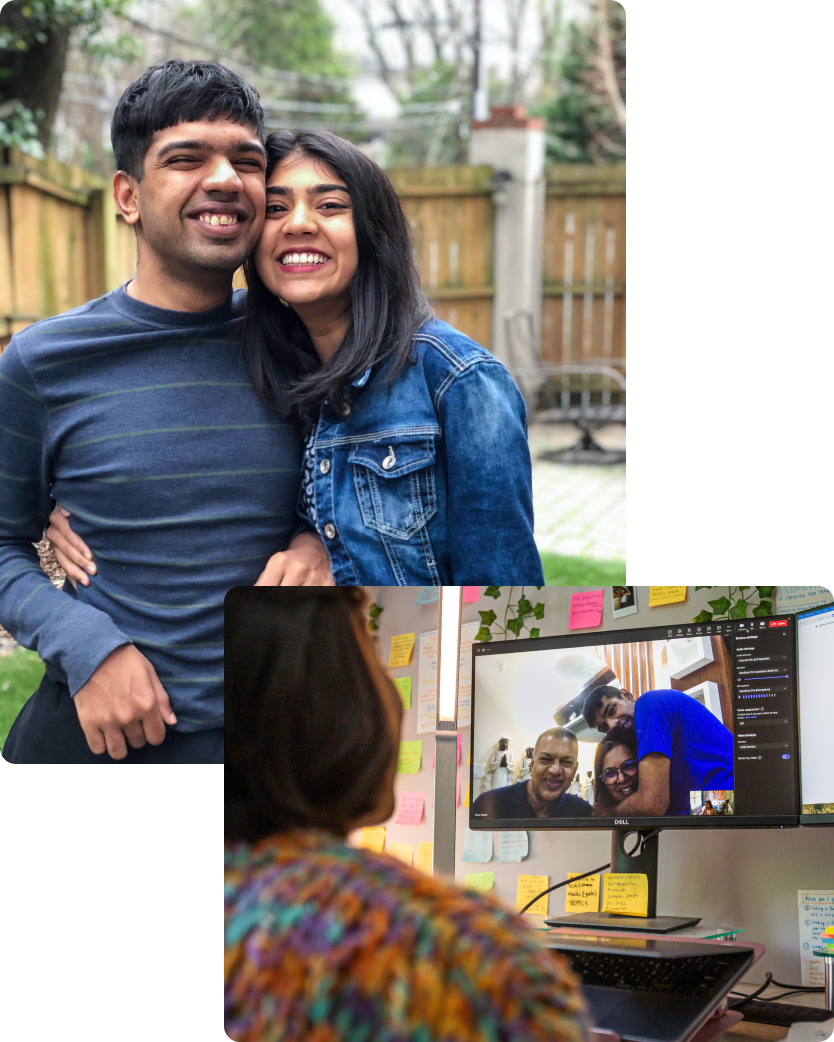
“I may not be able to speak, but I have a lot to say.”
Vikram Kumar
For 27 years, Vikram Kumar, a non-speaking autistic individual, silently observed the world with a limited ability to communicate his most basic needs. After 6 months of intensive therapy, he was given the tools to communicate, which confirmed what his sister Jhillika had always believed—that his lack of speech didn’t reflect his cognitive abilities. Her brother had a deep internal life full of hopes and dreams, and insights to share.
One of the first things he typed was ‘I want to get a job.’
This realization struck Jhillika deeply, and she couldn’t help but wonder how many other people with disabilities were overlooked. Furthermore, she asked herself what would be possible in a world where neuro exceptionalism could be viewed as a strength rather than a hindrance.
It was a question that would lead to the start of her company, Mentra.
Let us be inspired to empower and uplift those who have been overlooked for far too long.
Barriers and black holes
Neurodivergent professionals encounter significant barriers that are often overlooked by the average population. These barriers include a lack of understanding among recruiters and a reluctance among applicants to reveal their true selves, fearing discrimination and missed opportunities. Conner Reinhardt, COO and Co-Founder of Mentra, emphasizes that many individuals are afraid to “unmask” and share their condition due to concerns about potential discrimination. “Sometimes the applicant doesn’t want to share that they have a disability, or even when they do, the recruiter doesn’t understand, and they don’t get the accommodations they need.”
Furthermore, the existing job application and hiring infrastructure exacerbate the problem by filtering out candidates who don’t meet traditional criteria such as educational background and employment history.
These various barriers often result in what is commonly known as a “resume black hole” for neurodivergent candidates, where their applications go unnoticed or disregarded. Mentra’s digital platform seeks to solve this issue by providing a solution that connects professionals with opportunities, aiming to bridge the gap and facilitate a more inclusive and accessible job market.
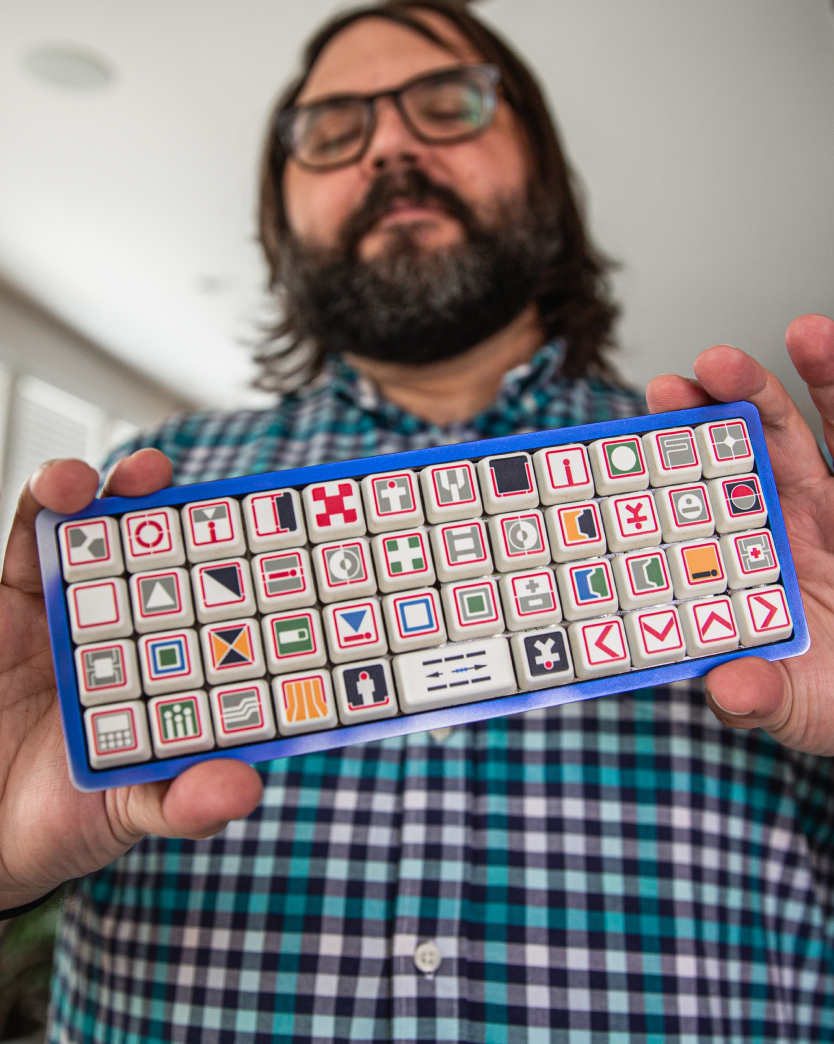
Dave Thomason, a Mentra engineer, designed his own keyboard to help automate workflows and support his working style.
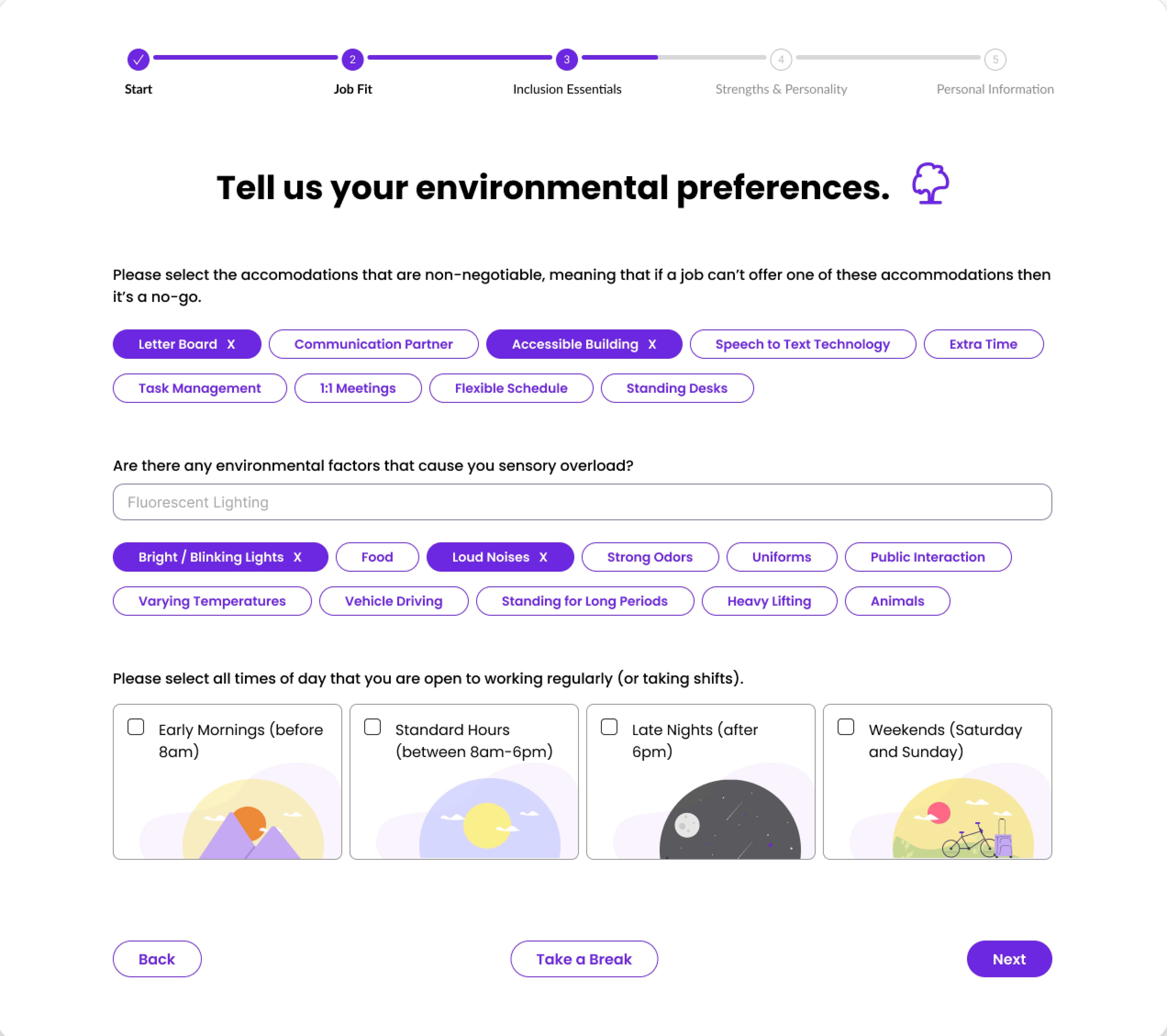
A quick glance at the Mentra platform, where individuals are welcomed to share their preferred accommodations.

Mentra uses AI to help over 44,000 neurodivergent candidates across the US find the right job.
Beyond the label
Mentra’s Microsoft AI-powered job-matching platform connects neurodivergent job seekers with suitable opportunities, emphasizing their strengths and skills. The platform aims to create a gamified environment for talent showcasing, upskilling access, and personalized career planning.
With Microsoft AI for Accessibility support, Mentra’s AI evaluates over 76 data points, including skills, accommodations, sensitivities, interests, and goals, surpassing traditional job fit criteria to prioritize long-term career success.
Mentra utilizes a unique reverse job-fair approach, allowing candidates to submit a single application to the “Mentraverse,” which then uses proactive AI recommendations to connect them with potential employers. With over 44,000 registered users, and growing at a rate of 35% monthly, Mentra has maintained an impressive 97% retention rate for pre-screened candidates and have seen 79% of recommended people receive interview invitations. 6
Mentra allows me to be an advocate and impact the lives of others like me. I get to be my true self daily—which I’ve never experienced before as an autistic individual.
Mentra’s distinction lies in their deep understanding of neurodivergent needs, stemming from their predominantly neurodiverse team. They champion inclusivity and co-create solutions through collaboration with candidates. Feedback and unique perspectives drive continual platform improvement, fostering an empowering community that celebrates diversity. Mentra’s platform transcends being a mere tool, nurturing a supportive environment that inspires and uplifts individuals on their career journeys.
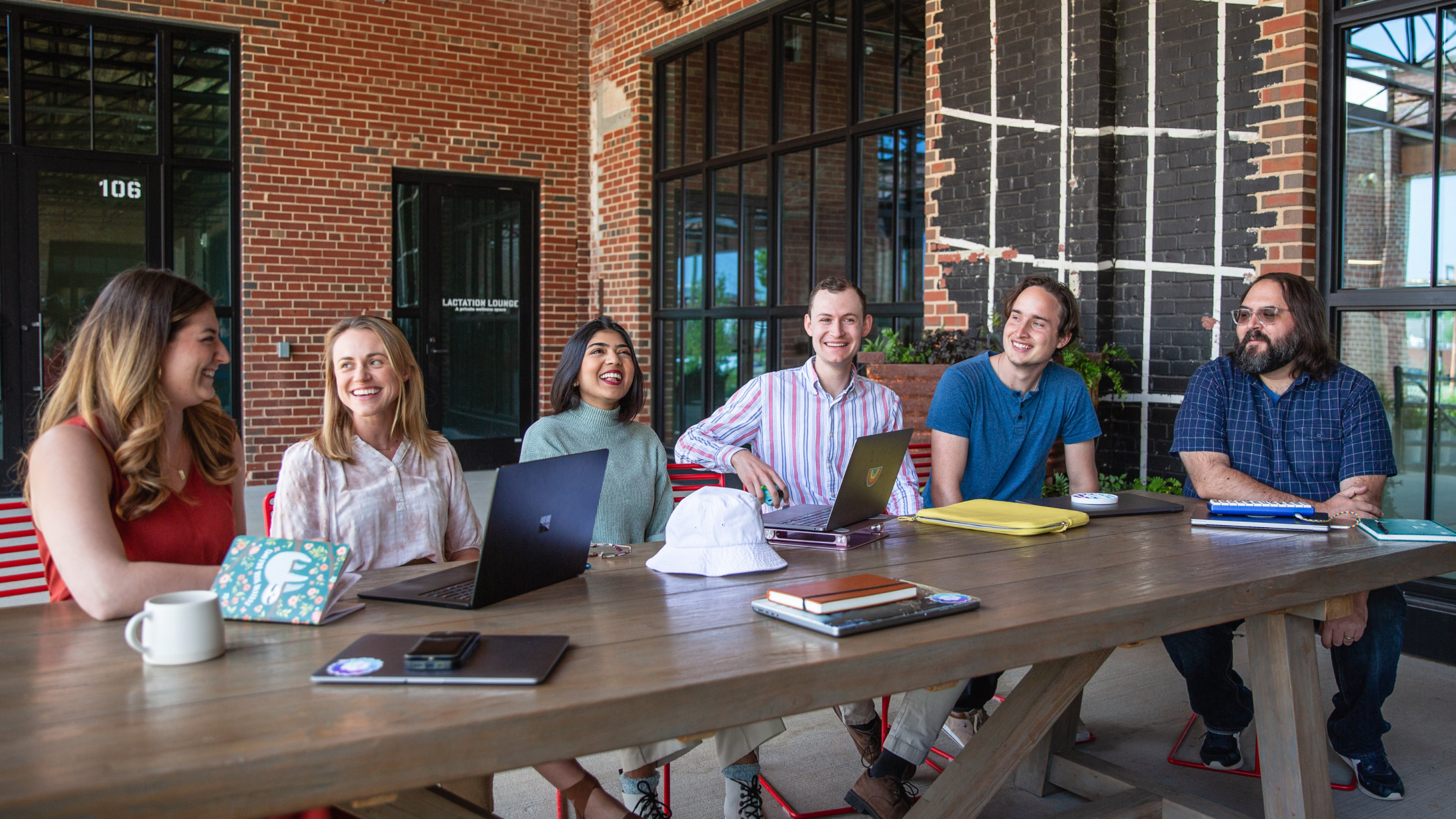
Neuroinclusion and innovation
Embracing neuroinclusion in the workforce brings about transformative effects. When companies foster a neurodiverse team, there is an inherent understanding of the different ways that people think and operate.
This understanding leads to increased mindfulness in problem-solving, considering unique perspectives and information-processing approaches. As a result, teams can become up to 30% more productive, as studies by Harvard Business Review and others have shown. 7
By eliminating barriers to neuroinclusion and empowering candidates to utilize their strengths, companies can attract new talent and activate the potential of existing team members. This fosters collaboration and fuels innovation. Mentra’s hiring platform simplifies the search process by connecting companies directly with neurodivergent candidates — benefiting both sides while promoting diversity and inclusivity in the workplace.
Creating a neurodiverse workforce can change what it means to work and who gets to work in meaningful environments.
It allows people from all different walks of life and experiences to come together, contribute their unique perspectives and skills, and ultimately help companies succeed in new and exciting ways.
Excited to see Mentra’s commitment to empowering neurodiverse talent, their work is impacting the disability divide and leading the way in how to scale this work in technology.
Microsoft seeks to attract talented neurodivergent candidates and provide the training and support needed for career growth and success.
Footnotes
- Councillor Ross Henley/ Julie Jordan, Strategic HR Lead. (2009). Neurodiversity Slides 2009 [PDF document]. Retrieved from https://www.local.gov.uk/sites/default/files/documents/Neurodiversity%20Slides%20200920.pdf
- Mentra. (2023). Neurodiversity. Retrieved from https://www.mentra.com/neurodiversity
- Harvard Business Review. (2017, May). Neurodiversity as a Competitive Advantage. Retrieved from https://hbr.org/2017/05/neurodiversity-as-a-competitive-advantage
- Christ, G. (2023, April 5). Half of neurodivergent workers want to quit their jobs or already have. Retrieved from https://www.hrdive.com/news/half-of-neurodivergent-workers-want-to-quit-their-jobs-or-already-have/646889/
- Councillor Ross Henley/ Julie Jordan, Strategic HR Lead. (2009). Neurodiversity Slides 2009 [PDF document]. Retrieved from https://www.local.gov.uk/sites/default/files/documents/Neurodiversity%20Slides%20200920.pdf
- Microsoft. (2021, May 20). Mentra is reimagining neurodiverse employment. Microsoft Accessibility Blog. https://blogs.microsoft.com/accessibility/mentra-is-reimagining-neurodiverse-employment/
- Harvard Business Review. (2017, May). Neurodiversity as a Competitive Advantage. Retrieved from https://hbr.org/2017/05/neurodiversity-as-a-competitive-advantage

